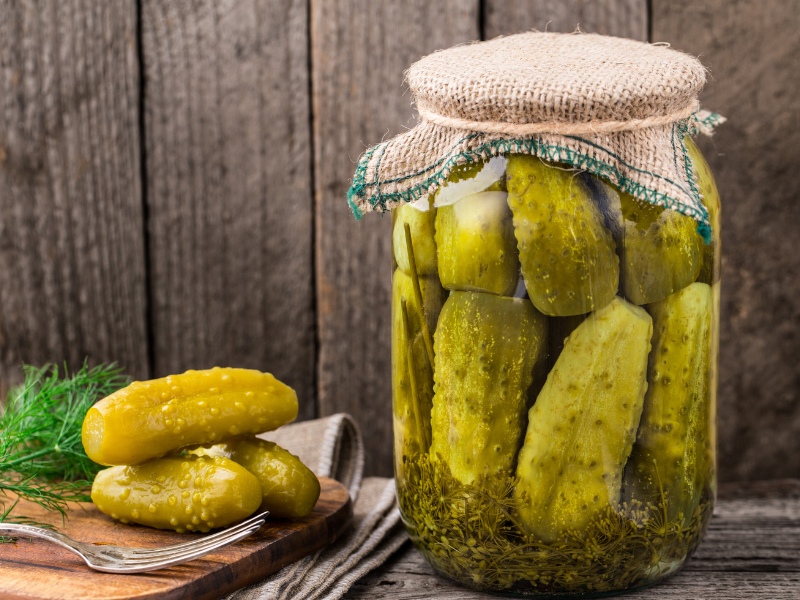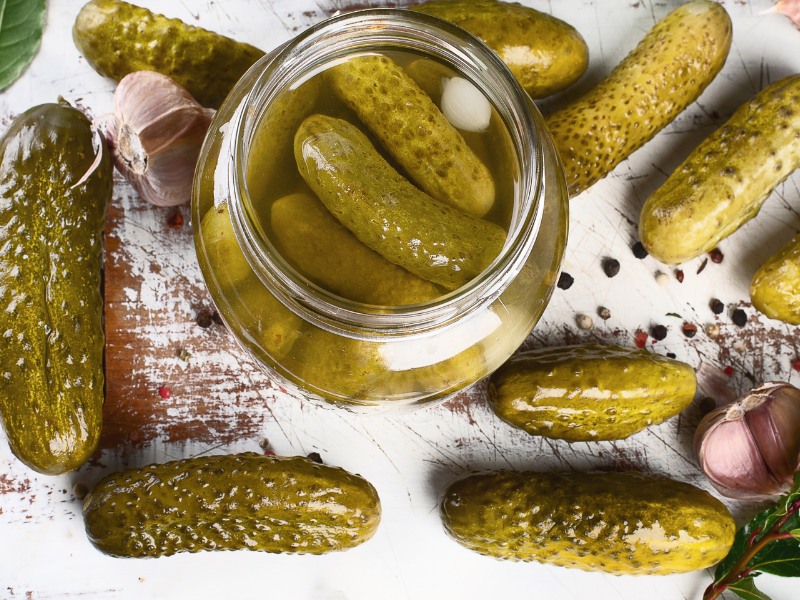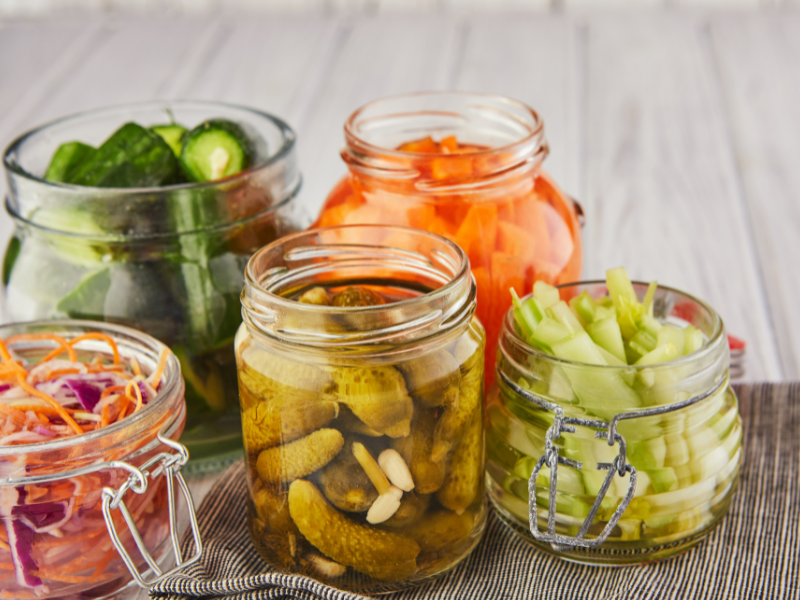


A crunchy, tangy snack that’s also low in calories? Pickles have always been popular, but the recent debates surrounding their health benefits have made them even more sought-after at present. But does it actually help you lose weight? In this article, we uncover the real benefits of pickles and whether it’s worth incorporating this into your weight loss eating plan!
Can Pickles Impact Weight Loss?

So how much of a difference can pickles make in your weight loss journey? Their low-calorie count and high water content do make for a favorable food item when you’re looking to lose weight. A medium-sized pickle only has 5-10 calories while also being a low-sugar option, and this helps with curbing cravings when you’re seeking more calorie-dense foods. The high water content also plays a role in making you feel full and limiting any unnecessary snacking to experience potential weight loss benefits.
However, salt and vinegar pickles do have high sodium content, and sometimes store-bought pickles include more than 50% of your daily recommended salt intake per serving. So go for the healthier options when you’re buying this low-calorie food, or better yet, you can also make your own pickles at home, where the salt is controlled and flavors can be customized. For a more filling and balanced snack, you can pair them with nuts or cheese.
What Type of Pickles are Good for Weight Loss?
Pickles that are low in sodium and added sugars are your best picks for weight loss. Go for low-sodium dill pickles or fermented cucumber pickles as they have fewer calories and probiotic benefits that help with gut health and digestion. Fermented pickles that undergo the natural fermentation process contain live bacteria that can help with weight management. It’s also best to avoid sweet pickles with their higher calorie count and quick pickles that are preserved in vinegar without fermentation.
General Health Benefits of Pickles
Aside from being a low-calorie snack, there are quite a few other health benefits offered by pickles:
- Rich in Vitamins and Minerals: Pickles provide essential nutrients like vitamin K (for blood clotting and bone health), vitamin C (boosts immunity), and potassium (helps regulate high blood pressure).
- High in Fiber: The fiber in pickles supports digestive health and can help lower cholesterol levels, promoting a healthier gut and cardiovascular system.
- Probiotics from Fermentation: Fermented pickles contain probiotics that benefit gut health, enhance digestion, and boost immunity.
- Helps Prevent Muscle Cramps: Pickle juice, packed with electrolytes like sodium and potassium, can help relieve and prevent muscle cramps, making it a popular post-workout drink.
- Supports Blood Sugar Regulation: The vinegar in pickle juice has been shown to help regulate blood sugar levels, offering potential benefits for those with type 2 diabetes.
More tips for your weight loss journey:
Can You Burn 1000 Calories a Day?: A Practical Guide
How to Lose Water Weight in 24 Hours Safely
Nutrition Facts of Pickles
Here, you can view the nutrition breakdown for a medium-sized dill pickle (approximately 65 grams) [1], [2]. This will, of course, differ depending on whether you’re eating sweet pickles, fermented ones, or quick-pickled varieties. :

- Calories: 5-10 kcal
- Total Fat: 0 g
- Sodium: 300-400 mg (this can vary a lot by brand)
- Carbohydrates: 1-2 g
- Fiber: 0.5-1 g
- Sugars: 0-1 g
- Protein: 0 g
- Vitamin A: 0-2% of your daily needs
- Vitamin C: 2-4% of your daily needs
- Vitamin K: 10-20% of your daily needs
- Potassium: 100-150 mg
Downsides of Pickle Consumption
The most evident downside is the sodium content, which can result in water retention and temporary weight gain. A cup of dill pickles contains over 1,100 milligrams of sodium, which is nearly half the daily recommended limit.
For anyone suffering from conditions like high blood pressure, liver issues, kidney disease etc., consuming pickles and the sodium that comes with it will worsen their health. The vitamin K content can also interfere with certain blood thinning medications like warfarin. So while pickles can be a good, low-calorie snack when consumed in moderation, people with certain conditions should avoid it.
Tips for Incorporating Pickles into Your Diet
Here are some ways you can make pickles a part of your everyday, balanced diet:

Pair with Protein: Combine pickles with snacks like cheese or nuts, this makes them more filling and part of a balanced meal.
Drink Pickle Juice: Fermented foods and their juices can help with your gut health and boost your metabolism too.
Add to Salads: Chop pickles into salads if you like that extra crunch and a tangy twist.
Top Your Sandwich: Skip the mayo and use pickles to add flavor to your sandwiches.
Try on Tacos/Burgers: Add pickles to tacos or burgers for a flavorful, zesty kick.
Make Relish: Make your own pickles at home for a low-sodium option. Dice these pickles and mix with onions and vinegar to create a relish for meats.
Conclusion
We hope that this article gave you some insight on pickles and can help you make your choice about including it in your weight loss efforts. For more tips and resources that can help you manage your weight, check out the JustFit app!





